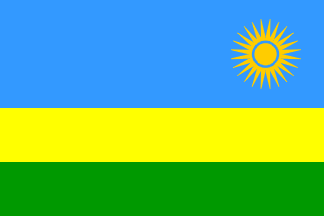
Yesterday in class, we debated the topic of the Rwandan Genocide. Jackie and I worked together as the Rwandan Armed Forces, Rwanda’s National Army. We worked hard to research our topic, but we still were a bit confused. For me, this topic was personally challenging because I don’t understand who the bad group is. I kept getting the names “Hutu” and “Tutsi” mixed up. In different articles, each stated that the opposite group of who I thought was at fault for killing all the people. Once I started researching this topic, it started to make more sense to me. During the research I did on FAR, I learned that it was made up of Hutus. It was interesting because during this debate, the Rwandan Armed Forces name was never brought up in conversation. This means that neither Jackie nor I had to defend the FAR. I was almost glad the the FAR's name wasn't brought up because I feel like I wouldn't have been able to confidently state the facts of the FAR. Now I feel like I know the facts well enough to defend the FAR if we had another debate.
My group, the Rwandan Armed Forces, had very little role in the genocide except for the fact that we killed the Tutsi rebels. The FAR, is a group of Hutus that were trained by the French. The rwandan armed forces were led by Juvenal Habyarimana until his plane was shot down by the Tutsis. The Tutsis are led by Paul Kigame. Kigame says that he wasn't responsible for shooting down Habyarimana and his plane. Although he says this, I strongly disagree. I believe that he was the one who shot it down. I was glad to hear that the French Court accused Kigame of killing Habyarimana. The French judge, Jean-Louis Bruguiere, was the one who accused Kigame of “ordering to shooting down the plane, which contributed to triggering the 1994 ethnic massacres and genocide.” The United States and Britain supported Kigame. (Paul Kigame accused by the French Court, globalreasearch.ca) I think that the US is also at fault during the genocide. I think they should've came to Rwanda's need when they knew the terrible things that were happening. The US and the UN both could've helped Rwanda by donating military supplies and providing food for the displaced Rwandans. Instead of helping, they sort of just watched from the side lines waiting for the genocide to be over. I think that if they would have stepped in, a lot of lives could have been saved. The Rwandan Armed Forces did their best to protect the people of Rwanda.
